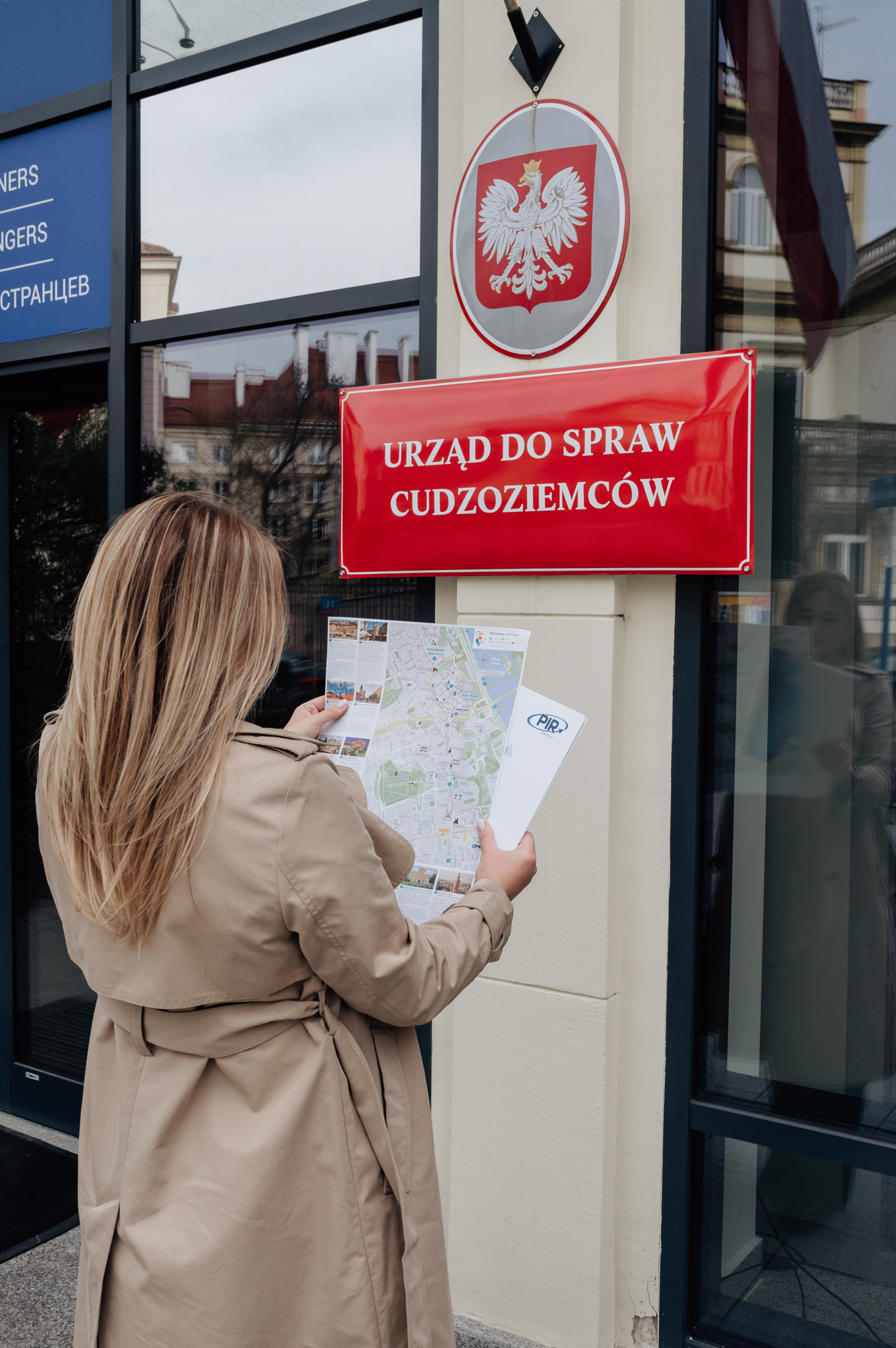Prepare for the relocation to Poland with PIRGROUP! Let us guide you and your employees in exploring this captivating country. Discover Poland with PIRGROUP assistance!
PIRGROUP will guide you through the immigration system in Poland, offering you the best solution tailored to your needs.
For non-EU citizens:
You’ll need two documents to work in Poland: a work permit and a work visa.
The difference between the two is that the Poland work permit allows you to work in Poland, whereas the Poland work visa allows you to enter and stay in Poland as an employee.
Poland work permit
- Applications for the Poland work permit are mainly handled by the employer. The employer must prove that no Polish or EU national is suitable to fill the role by carrying out a labour market test.
- Next, the employer needs to officially apply for a Poland work permit and meet certain criteria: salary requirements and to provide all the relevant documentation.
- Your Poland work permit will be issued by the Voivodeship office in your district of residence.
Poland work visa
- Several Poland work visa options exist (visa D, business, study, family reunification etc.), and the choice will depend on the purpose of your stay in Poland. Our team will make sure that your case is carefully analysed, and the correct visa and complete information on the immigration requirements is shared with you.
- If work is your main purpose of residency in Poland, then your employer will obtain the Poland work permit for you. Five different work permits exist: A, B, C, D and S. You can apply for a Poland work visa on the grounds of a proper Poland work permit.
- Most foreign workers need either a C visa, which is suitable for short stays in Poland, or D visa for longer stays. Both are Schengen visas.
- You are eligible for an A-type visa if you are being employed by a Polish company.
- Type C or E visas apply mainly to instances of internal transfers when existing employees move to a Polish branch.
Temporary residence permit
- You can also apply for the Temporary Residence Permit (TRP) in Poland. The TRP is normally issued for a period of three years and entitles the holder to travel to and from Poland and cross the border multiple times.
- Please be mindful of when you want to renew your TRP as the renewal process can take a long time and additional actions may need to be taken to allow you to continue to work and stay in the country.
- Your family members are welcome to join you and live with you in Poland as long as you stay in Poland for two years under the TRP. This requirement does not apply to highly skilled employees. In their case, bringing family members is easier.
For EU citizens:
Fortunately, Poland is a member of the European Union (EU) and European Economic Area, and, thanks to this, EU citizens do not need to acquire any type of Poland work visa or Poland work permit. EU citizens also have the right to travel and study in Poland without a visa. However, if an EU citizen intends to live in Poland for more than three months, they must register their residency with the competent authority. Providing evidence of insurance coverage may also be necessary.
We’re aware that the immigration process can be complicated but we’ll do our best to make it as easy as we can.
Don’t hesitate to get in touch with us for a personalised consultation!


Getting ready for your relocation to Poland is bound to be an exciting adventure. Make the journey more enjoyable with the assistance of PIRGROUP!
Housing
High European living standards at affordable prices
Moving to Poland is a wonderful idea and meticulous endeavour. One of the most important factors speeding up the adaptation process is the opportunity to find suitable accommodation in line with your lifestyle and expectations.
In Poland, you can experience the high standards of European living for a fraction of the price. Rental property prices remain relatively low compared to other major European countries while the infrastructure of Polish cities is highly developed.
In Warsaw, for instance, you can choose from a large variety of properties to rent, such as flats in historical tenements in the Old Town, post-Soviet buildings or modern and luxurious new estates with facilities including swimming pools and private gyms.
Be aware of certain obstacles that may occur during your relocation to Poland. While moving to Poland – specifically the capital city Warsaw – bear in mind how big it is. Here, PIRGROUP may prove extremely useful. We’ill show you around Warsaw, advise you and help choose a place where you'll feel comfortable living in and commuting from to work or school.
Because Warsaw is widespread and still expanding, you need to carefully choose where to live in regard to such commutes. Top international schools can even be an hour’s a drive away from the business hubs of Warsaw. Not only this, but even a basic walk through the centre of Warsaw can mean over one hour on foot.
Finally, some difficulties may occur when dealing with the authorities, as well as when concluding a tenancy agreement. Polish law does not fully protect landlords, so they have been increasingly trying to protect their interests by requiring additional documents or an occasional lease agreement, which is difficult for foreigners to acquire without knowing the market from the inside.
Transport
Highly developed and constantly evolving transport infrastructure
While living in or moving to Poland, prepare to take advantage of the highly developed and ever-transforming transport infrastructure. Travelling from one place to another is fast and efficient thanks to new and modern roads, as well as the wide variety of public transport, such as trains, trams and buses, especially in big cities. Warsaw also has a metro service. For more detailed information on everything concerning public transport in Warsaw, please visit this website, offering a wide range of information.
Additionally, for the environmentally conscious people moving to Poland, especially its larger cities, it may be good to know that city bikes and electric vehicles are easy to rent, helping commuters reduce their carbon footprints. One of the apps we suggest using for bike rent is Veturilo, which offers a cost-effective and sustainable way for travelling around the city.
Healthcare
High-quality healthcare services
When moving to Poland, you can be sure that the quality of the healthcare service is high.
Both public and private healthcare is available in Poland, with plenty of hospital facilities. Unfortunately, the state hospitals are reminiscent of the old times and long waiting lists to see a specialist or undergo surgery are common.
The private healthcare system ensures faster access to specialists, and its hospitals are known for their attentive personnel, modern high-tech equipment and patient-friendly interiors. Many expats opt for private healthcare following their relocation to Poland.
Schooling – international
Excellent educational opportunities, with access to world-class primary, secondary, and university education
Moving to Poland can prove an excellent idea education-wise. Foreign students can expand their horizons by receiving world-class education from primary level all the way through secondary school and university.
What can relocation to Poland offer in terms of education? Worth mentioning is the possibility to enroll in the prestigious International Baccalaureate (IB) programme. Currently in Poland, 55 schools – including both state and charter and private schools – offer IB courses, preparing students for the final IB diploma exam, which can be taken at 47 schools in Poland. The IB courses are also aimed at Primary Years learners (IB PYP) and Middle Years students (IB MYP). Warsaw is home to the most schools running the IB programme.